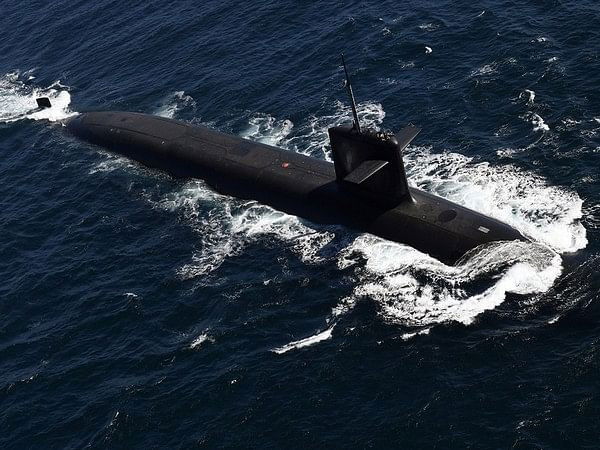America
Australia, US and UK leaders to unveil nuclear submarine partnership to counter China

Washington [US], March 12 (ANI)
The leaders of the US, Australia and the UK will unveil on Monday a plan to outfit Australia with nuclear-powered submarines in an unprecedented three-way defense partnership dubbed AUKUS that seeks to counter China's attempts to achieve naval dominance in the Pacific, reported Japan Times.
US President Joe Biden, Australian Prime Minister Anthony Albanese and British Prime Minister Rishi Sunak will gather in the California naval hub to flesh out military cooperation as concerns grow over a fast-rising threats from China. The plan, known as AUKUS, was first announced in September 2021. The advanced submarines -- the first of which will be American-made -- are now expected to arrive as early as 2032, still a decade off but years ahead of the timeline many expected, said Western officials, who like others interviewed spoke on the condition of anonymity because of the matter's sensitivity, reported The Washington Post.
President Biden, Australian Prime Minister Anthony Albanese and UK Prime Minister Rishi Sunak will unveil the details of the new partnership aboard the USS Missouri submarine in San Diego. If realized, analysts said, it could be the most consequential trilateral defense technology partnership in modern history.
The key element of AUKUS was a US agreement to export to Australia its prized technology of nuclear-powered submarines, previously shared only with Britain when it designed its undersea fleet in the 1960s, reported Japan Times.
Ahead of the expected announcement for British-built submarines with US parts, China warned that AUKUS risked setting off an arms race and accused the three countries of setting back nuclear nonproliferation efforts.
"We urge the US, the UK and Australia to abandon the Cold War mentality and zero-sum games, honor international obligations in good faith and do more things that are conducive to regional peace and stability," Chinese Foreign Ministry spokeswoman Mao Ning told reporters in Beijing.
Australia has committed to a "proportional" investment in US and British industrial capacity, and over the next several decades will be spending more than USD 100 billion to buy the submarines and build up its own industrial capacity, as well as shore up America's and Britain's shipbuilding capability.
Nuclear-powered submarines would allow Australia in the coming decades to maintain an underwater presence for months on end, offering an advantage as China's military expands its reach, reported Japan Times.
China in recent months reached a controversial security pact with the Solomon Islands and has not ruled out the use of force to take Taiwan, a self-governing democracy that is claimed by Beijing and effectively blocks it from projecting military power deeper into the Pacific.

13 hours ago
Trump, Mamdani bonhomie an unusual photo-op in Oval Office, but how long will truce last?

13 hours ago
Trump Jr grooves with Ranveer Singh at lavish Udaipur wedding as JLo, Bieber join celebrations

16 hours ago
BAPS, United Nations celebrate 30 years of transformative partnership for global harmony

19 hours ago
Ayan Mukerji says 'Love you & Miss you' as he remembers dad Deb Mukherjee on his birth anniversary

19 hours ago
Urmila Matondkar introduces her 'bestest winter essential'

19 hours ago
Tharoor cites Trump-Mamdani interaction to underline need for political cooperation

19 hours ago
ISI steps up effort to build white-collared modules by targeting Indian students abroad

19 hours ago
Prez Murmu participates in Sri Sathya Sai Baba’s birth centenary celebrations in Andhra

19 hours ago
Ready to meet PM Modi to explain Coimbatore, Madurai metro projects: CM Stalin

19 hours ago
No need to do politics on Mandir–Masjid: Former Babri mosque litigant on Trinamool MLA’s remark

19 hours ago
Navy Day 2025 to feature grand operational display of maritime power on Dec 3

19 hours ago
Delhi: AGS arrests accused wanted in attempt-to-murder case in Timarpur

19 hours ago
Govt to ensure uniform safety and health standards for workers






















